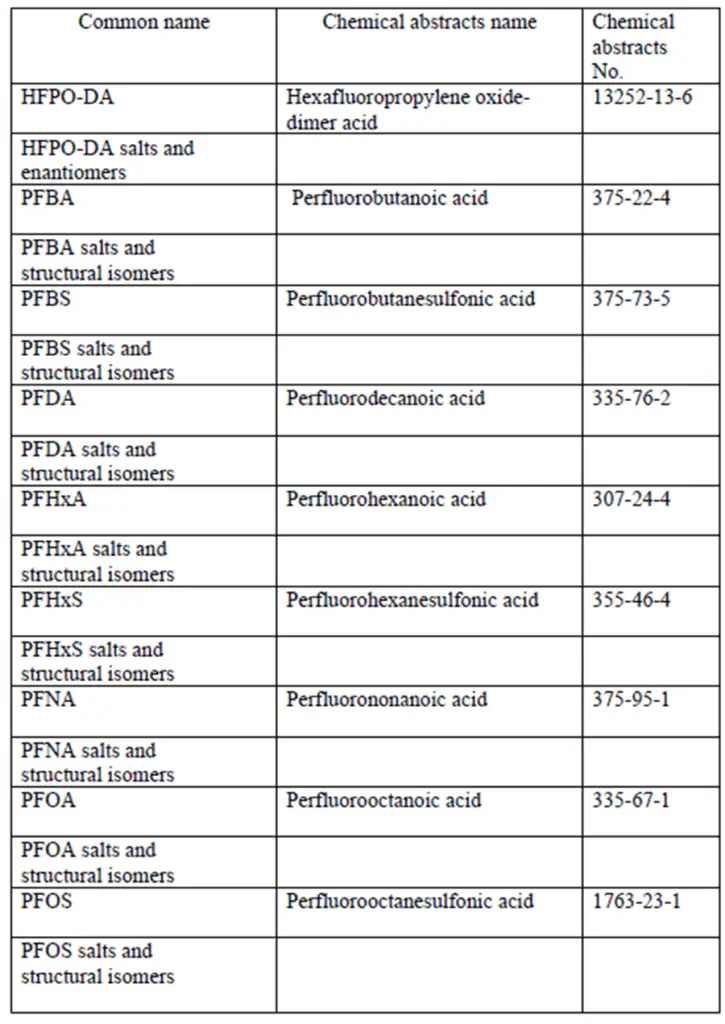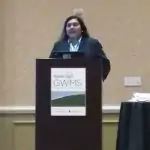

In response to its PFAS Strategic Roadmap, the Environmental Protection Agency (EPA) initiated two regulatory actions under the Resource Conservation and Recovery Act (RCRA) to tackle PFAS pollution. Once implemented, these measures will empower federal and state agencies with advanced tools for PFAS remediation.
The initial proposed regulation intends to designate specific PFAS as “hazardous constituents” within RCRA’s framework, making them subject to detailed scrutiny and cleanup actions at sites handling hazardous waste.
The second proposed rule aims to affirm that new contaminants, including certain PFAS that are not currently classified as “hazardous wastes” yet align with the definition of “hazardous waste” in RCRA section 1004(5), should be managed equivalently to traditional hazardous wastes in the context of corrective actions. Listing these PFAS as RCRA hazardous constituents does not make them, or the wastes containing them, RCRA hazardous wastes.

On February 8, 2024, the EPA proposed to add nine PFAS compounds to the list of “hazardous constituents” to be considered “in RCRA facility assessments and, where necessary, further investigation and cleanup through the RCRA corrective action process.” Appendix VIII to Part 261 – Hazardous Constituents shown at right.
If finalized, this hazardous constituent listing would form part of the basis for any future action the EPA may take to list these substances as hazardous waste.
EPA’s criteria for listing substances as hazardous constituents under RCRA require that they have been shown in scientific studies to have toxic, carcinogenic, mutagenic, or teratogenic effects on humans or other life forms.
Entities potentially affected by the proposed rule include hazardous waste treatment, storage, and disposal facilities (TSDFs) with solid waste management units (SWMUs) that have released or could release any of the PFAS proposed to be listed as RCRA hazardous constituents. EPA has identified 1,740 such facilities, which could be subject to additional corrective action requirements. “Waste Management and Remediation Services” had the highest number of facilities (359) with a high likelihood of handling PFAS.
The primary goal of the suggested amendment is to update 40 CFR 264.101 so that it accurately mirrors the requirements for corrective action cleanups at hazardous waste Treatment, Storage, and Disposal Facilities (TSDFs) as specified by RCRA sections 3004(u) and (v). The modifications are designed to clarify that the management of hazardous waste releases, including those not categorized as hazardous under current regulations but fitting the broader definition in RCRA section 1004(5), should adhere to the established protocols for hazardous waste under the corrective action program. Focusing on Per- and Polyfluoroalkyl Substances (PFAS), this regulatory action is a crucial part of the EPA’s PFAS Strategic Roadmap.
Should this proposed regulation be adopted, it would mean that PFAS would be specifically included as hazardous constituents to be considered during facility assessments and, where necessary, further investigation and cleanup under the RCRA corrective action process at hazardous waste TSDFs.
The proposed regulation states that “solid waste disposal facilities, such as those for municipal waste or construction and demolition debris, would not be subject to RCRA corrective action requirements unless they also function as hazardous waste TSDFs.”
Subtitle D of RCRA covers non-hazardous solid waste management, including municipal solid waste landfills, which are subject to different regulations than hazardous waste facilities (regulated under Subtitle C).
Although the recent proposal by the EPA to revise RCRA does not aim at mandating corrective actions at municipal solid waste (MSW) landfills, it sets the stage for probable future amendments under Subtitle C that might classify certain PFAS-containing waste streams, currently considered non-hazardous, as hazardous waste (e.g., listed or characteristic wastes).
While it is premature to predict the impact of future hazardous waste regulations on MSW landfills, it is appropriate to begin collecting information on PFAS waste and assessing potential effects now. Landfills that have implemented special waste review programs (for example, for non-hazardous industrial wastes like wastewater treatment sludge) are advised to expand their waste characterization efforts within these programs to include requests for data on the presence and concentration of the nine PFAS constituents highlighted in the proposed RCRA rule. Additionally, landfills without such review programs are encouraged to consider establishing them.
Additional Resources/Legislation:
About the Authors: Connect with our authors and experts at
 Jeff Marshall, PE, is a Vice President of SCS Engineers, Environmental Services Practice Leader for SCS offices in the Mid-Atlantic region, and our National Expert on Emerging Contaminants and Innovative Technologies. His four decades of experience include a diversified project engineering and management background, emphasizing environmental chemistry, hazardous materials, waste, and human health risk issues. Focus areas include environmental permitting, regulatory compliance, and hazardous materials treatment and remediation. He is a licensed professional engineer in Virginia, Maryland, West Virginia, North Carolina, and South Carolina.
Jeff Marshall, PE, is a Vice President of SCS Engineers, Environmental Services Practice Leader for SCS offices in the Mid-Atlantic region, and our National Expert on Emerging Contaminants and Innovative Technologies. His four decades of experience include a diversified project engineering and management background, emphasizing environmental chemistry, hazardous materials, waste, and human health risk issues. Focus areas include environmental permitting, regulatory compliance, and hazardous materials treatment and remediation. He is a licensed professional engineer in Virginia, Maryland, West Virginia, North Carolina, and South Carolina.
Across the industry, stakeholders agree the next few years will be critical in shaping how landfills deal with PFAS and how the public perceives it. Waste trade associations, scientists, and a host of organizations are in the midst of conducting a number of studies looking closely at the issue, PFAS treatment options, the positive impact of recycling, and regulatory policies.
While there are sites noted in the article, there’s no practical way for most companies and landfills to respond at this time responsibly. Additionally, landfills are unique; no two are alike. Most human exposure to PFAS occurs through contaminated food. The majority of landfill leachate is pre-treated at the landfill before going to a wastewater treatment plant, where additional treatment occurs before discharge.
According to EREF President Dr. Bryan Staley, in the article, “The relative impact of leachate as a human exposure pathway needs further evaluation to understand its relative degree of importance as it relates to health implications.”

Dr. Gomathy Radhakrishna Iyer, landfill leachate and design expert for SCS Engineers, said some operators are waiting to see what regulations may come even as they work on accounting for potential compliance issues and seeking solutions. “When the clients are thinking of upgrading their treatment plans, some are definitely taking into consideration PFAS treatment,” Radhakrishna Iyer said.
“You’re spending millions of dollars, you need to do your due diligence, right? At this point, consideration should be given to PFAS treatment during the feasibility stages,” she said.
This EREF Summit will bring together practicing engineers, academics, industry professionals, government personnel and policymakers to facilitate discussion and provide various perspectives on the management, issues, and policies related to PFAS.
Per- and polyfluoroalkyl substances (PFAS) are a group of compounds that are man-made and are commonly used in industrial processes and consumer products such as food packaging, fire-fighting foams, metal plating, outdoor gear, popcorn bags, food wrappers, facial moisturizers, mattresses, carpeting, and cookware. Despite the widespread use of PFAS in everyday products, there are still significant knowledge gaps associated with the management of these compounds.
SCS Engineers is a sponsor of this EREF Summit. Liquids Management at SCS Engineers